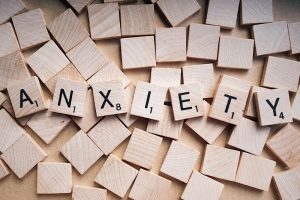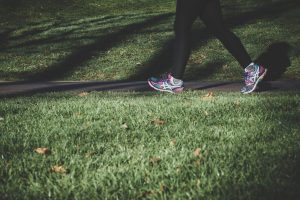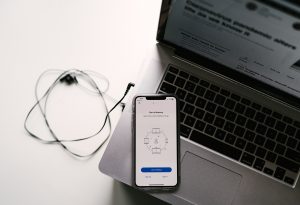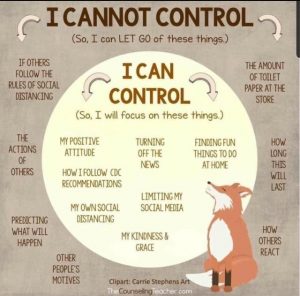Why Are Children So Affected By Anxiety?
The main reason for anxiety is that children, like us adults don’t always cope with change, when their routine has changed a lot such as during Covid 19.
Before Covid 19 they probably had a good routine. Children thrive on routine and they know the rules and boundaries, it helps make them feel safe, when this is gone they feel lost. They got up early, got dressed had breakfast, got to school, met and played with friends and then home around 3 o’clock. But then it all changed, due to Covid 19 our worlds were changed in a way no one could ever of imagined, no routine, nothing seems normal anymore. For children they don’t know how to express this, especially if they are very young. How to express they are scared? Worried? Sad? Lonely or confused etc. They don’t know how to react to us either as its tough for us too, and the likelihood is our behaviours have changed too. We will probably notice their behaviours and body language has changed; moody, tearful, started bed wetting or soiling underwear, not sleeping etc etc. This is their body showing us what is going on in their minds.
Covid 19 has meant that until recently we haven’t been able to see friends and family outside of our own households and this has a massive effect on us. We as humans, especially children like to touch, hug, hold hands, play together and they have not been able to do this. Yes we have facetime, whats app and telephones which we can be grateful for but it doesn’t make up for that personal contact they we also need as adults.
What Is Anxiety?
Firstly, It’s important to remember that anxiety is a normal human reaction to a perceived threat and not an illness. When we face stressful situations, it can set off a fight, flee or freeze reaction in our brain’s natural alarm bell system. Its telling us something is wrong and that we need to deal with it. We want the stressful situation to go away, so it makes us much more alert than normal and affects our thinking and doesn’t allow us to think about other things easily. This stress response can make us feel panicky, increase heart rates, make our hands go clammy and help us run away.
We all worry sometimes; it shows we care about things and afterwards we usually calm down and feel better. However, when it affects daily life, maybe going out, friendships and there is no stressful situation but you still feel stressed anxiety can become a problem.
Symptoms Of Anxiety Can Include:
If your child’s symptoms get worse or last longer than they should, it could be time to get some professional support such as your G.P or talking therapy such as hypnotherapy.
Symptoms can include:
- feeling overwhelmed or full of dread
- feeling nervous, on edge, or panicky all the time
- feeling out of control
- finding it difficult to concentrate
- having trouble sleeping
- bed wetting
- low appetite
- feeling tired and grumpy
- getting very hot
- heart beating really fast
- having a dry mouth
- trembling
- feeling faint
- wobbly legs
- stomach cramps and/or diarrhoea
- sweating more than usual
How Are Things Likely To Be?

First day at school is difficult for many children and now they have to look at going through this experience again! New routines, new friend groups, social distancing, different timings, its going to be a challenging time for them, for us and also for the teachers and staff. We are all going to need to be flexible and adaptable to change but often we are reluctant to change, generally speaking we don’t like change.
Its important to be patient and to keep communication open, relaxed and calm with children that will want to talk about all the changes happening and to be honest with them. Prepare them for what to expect at school and this will help to reduce their anxiety.
There are some positives. Maybe they have learnt a new skill: interacted with teachers on line, used various video conferencing and maybe learnt to bake, helped with gardening. Many of us have exercised more as a family, walking the dog or just going for a walk and this is really good for us physically as well as mentally. We have learnt too how to be a part of the community, to be helped or to have help others in need.
Help Your Child Get Back To School
As summer holidays get closer and the thought of going back in September gets closer children maybe feeling many different emotions from excitement to dread. The thought of a new school, new friends, new teachers may thrill and excite some children and they will feel just a little bit nervous but for some it’s a very daunting thought and their anxiety and worry can stop them attending school altogether.
Transition times such as moving or changing schools often carries more stress and anxiety and can affect children even more.
If you suspect that your child may be experiencing significant anxiety about returning to school hypnotherapy can help them gain the support and skills that they need to successfully navigate their fears.
How Can Hypnotherapy Help?

Hypnotherapy is a highly effective way of helping children and young people overcome anxiety. It is a form of guided relaxation using trance, a natural daydream like state using visual imagery and positive affirmations to help them increase their sense of wellbeing. They are always in control and have an awareness of their surroundings. I use extracts from our conversation, words they have used included in their relaxation to help the process.
Children are extremely receptive to hypnotherapy as they have great imaginations and don’t usually have preconceived ideas about what it involves like many adults do. It is a relaxing experience but often they will have their eyes open and be wriggling and fidgeting around. Children use their imaginations to relax, have fun and come up with solutions that work for them.
Hypnotherapy can help boost feelings of confidence and self-belief while reducing feelings of fear and intense worry. It can help children to  feel more relaxed in previously challenging /difficult situations and help improve sleep. Hypnotherapy can help children (and adults) develop the ability to access the relaxed state of mind needed to overcome the often-overwhelming emotions that come with anxiety.
feel more relaxed in previously challenging /difficult situations and help improve sleep. Hypnotherapy can help children (and adults) develop the ability to access the relaxed state of mind needed to overcome the often-overwhelming emotions that come with anxiety.
Of course a child has to want to get better and engage in the talking therapy and generally they do. Its important to note that parents are important too, to support, guide and enable their child. However, parents also need to consider the possibility that children are learning from their own behaviours.
If you would like help or support for your child please contact me for a chat on 07516 962361 or to book your FREE initial consultation.
I look forward to hearing from you,
Best wishes,
Louise

 Judith: “A sense of normality, fresh air…. and a sense of normality.” For a few minutes I can enjoy the beauty of the outside and forget what’s happening in the world….. to be fair, that’s what I’ve always used running for. And because there are no races, I can just enjoy running for running’s sake…. it’s liberating.”
Judith: “A sense of normality, fresh air…. and a sense of normality.” For a few minutes I can enjoy the beauty of the outside and forget what’s happening in the world….. to be fair, that’s what I’ve always used running for. And because there are no races, I can just enjoy running for running’s sake…. it’s liberating.”

 Since the lockdown started, many people have enjoyed online hypnotherapy, and there is plenty of anecdotal evidence of how well it works, but some people are still looking for evidence that an online therapy session is as good as a face-to-face session. The good news is that there is already some clinical evidence of the efficacy on online hypnotherapy. For example, there’s a 2014 study entitled Internet-based versus face-to-face cognitive behavioural intervention for depression: A randomized controlled non-inferiority Internet-based versus face-to-face cognitive-behavioural intervention for depression: A randomized controlled non-inferiority trialtrial
Since the lockdown started, many people have enjoyed online hypnotherapy, and there is plenty of anecdotal evidence of how well it works, but some people are still looking for evidence that an online therapy session is as good as a face-to-face session. The good news is that there is already some clinical evidence of the efficacy on online hypnotherapy. For example, there’s a 2014 study entitled Internet-based versus face-to-face cognitive behavioural intervention for depression: A randomized controlled non-inferiority Internet-based versus face-to-face cognitive-behavioural intervention for depression: A randomized controlled non-inferiority trialtrial also a member of .
also a member of .
 ething that can be greatly improved by hypnotherapy. Hypnotherapy can help you learn how to relax and go to sleep, and stay asleep, to calm down the part of your mind that is wide awake and worrying during the night when you are trying to sleep, it will also help to regulate your sleep patterns.
ething that can be greatly improved by hypnotherapy. Hypnotherapy can help you learn how to relax and go to sleep, and stay asleep, to calm down the part of your mind that is wide awake and worrying during the night when you are trying to sleep, it will also help to regulate your sleep patterns.
 Neuroplasticity is learning a new skill. Remember that first driving lesson? Certainly, for me there was almost too much to take in, the clutch, the steering wheel, changing gear, let alone navigating busy London roads. In that first lesson, I remember thinking it impossible I’d ever be able to do all of it at once. Yet here I am, many years later, tootling the kids around in the middle of rush hour, debating with both of them about whether the song on the radio is ‘cool’ or not whilst simultaneously thinking about what we’re having for dinner, whether my youngest has brought home their reading book, and keeping an eye on the cyclist 200 meters ahead. I am NOT thinking about what my feet and my hands are doing. That’s automatic now. I have wired in pathways in my brain related to that skill which is ‘driving’. But it took practice, repetition and time to establish those pathways. It also helped that I wanted to learn in the first place.
Neuroplasticity is learning a new skill. Remember that first driving lesson? Certainly, for me there was almost too much to take in, the clutch, the steering wheel, changing gear, let alone navigating busy London roads. In that first lesson, I remember thinking it impossible I’d ever be able to do all of it at once. Yet here I am, many years later, tootling the kids around in the middle of rush hour, debating with both of them about whether the song on the radio is ‘cool’ or not whilst simultaneously thinking about what we’re having for dinner, whether my youngest has brought home their reading book, and keeping an eye on the cyclist 200 meters ahead. I am NOT thinking about what my feet and my hands are doing. That’s automatic now. I have wired in pathways in my brain related to that skill which is ‘driving’. But it took practice, repetition and time to establish those pathways. It also helped that I wanted to learn in the first place. thing new is to go to the gym more often, make a cup of tea rather than open a bottle of wine, or simply be kinder to ourselves or others. The second piece of good news is it’s never too late to do so. Whilst children and teens have an enviously plastic brain, we can still influence the connectivity of our grey matter well into late adulthood. In fact, my oldest client in her early nineties surprised herself by discovering she’s a great watercolour artist! Not only that, but she CAN be assertive and self-confident, much to the amusement and support of her family and friends.
thing new is to go to the gym more often, make a cup of tea rather than open a bottle of wine, or simply be kinder to ourselves or others. The second piece of good news is it’s never too late to do so. Whilst children and teens have an enviously plastic brain, we can still influence the connectivity of our grey matter well into late adulthood. In fact, my oldest client in her early nineties surprised herself by discovering she’s a great watercolour artist! Not only that, but she CAN be assertive and self-confident, much to the amusement and support of her family and friends. Focus On What You Can Control !
Focus On What You Can Control !

